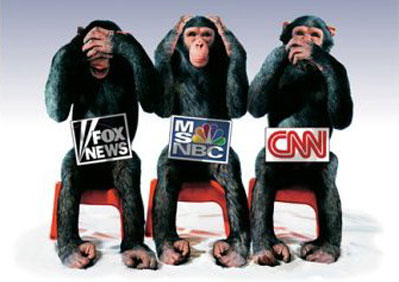Notes to self when writing about social issues
I was motivated to write this post at the start of a busy school week by a couple of factors: 1. the number of posts I've seen on news sites covering Charlie Hebdo 2. some things I've seen written on blogs, FB etc spurred me to think about the issue of writing.
Socio-politics can be touchy and sensitive, and writing about it requires as much empathy as much as it requires skill. I'm neither a very empathetic nor skilled writer (LOL, but hey, I'm trying!), and on many occasions I've pulled down posts I either felt were badly written or might leave a bad impression with my audience. I can't write (that well), but as an avid reader I do know what kind of posts I hate to read. So here's a checklist for myself, as well as anyone who likes to write, to think about before churning out socio-political content for a wide audience. Do drop a comment below if you've got anything to add, thanks for reading!
1. Always write with your audience in mind.
Many a time people write to rant- after all, it is human to want to let off steam! However, I feel it is important not to lose sight of the people and the purpose you're writing for. Is it to change somebody's mind? Share an experience? Debunk a myth? Offer an alternate narrative?
2. Don't lie about your opponents' viewpoints or intentions.
When you have to make a strawman of your opponent's arguments, you can almost be certain you're losing the argument. Trying to convince your audience by deceiving them is not only condescending, it is makes you lose credibility. Ever wondered why in GP essays they always make you offer counter-arguments or your tutor will threaten to fail your essay? It is not so much to "provide a balanced essay" as much as to show the marker you have considered both sides of the argument and yet you're still able to convince readers that your stand is the superior one.
Similarly, when presented with a countering viewpoint, the harder, but eventually smarter, route to choose is to dissect their argument with facts and logic, and make your argument look stronger.
3. Recognise that freedom of speech is a privilege that does not excuse you from criticism, or even getting banned.
Freedom of speech is a term so frequently misused by people who want to be verbally abusive, that they forget when other criticise them something offensive that you say, these critics are also practising freedom of speech. While I do feel that certain kinds of people should not be allowed a platform to write at all (e.g. people who make rape jokes), thankfully, most other people don't write with malicious intent, but people fight anyway because it is human to disagree. A key to note is that whenever you put an opinion out there, accept the fact that you could be wrong, or that people can experience things differently.
4. Know your place.
Privilege is still a very alien concept to many people. One of the greatest takeaways of reading is that you are exposed to different narratives and perspectives, and it is humbling because simply, you get put in your place (i.e. you're reminded that you don't know everything and people do live life differently).
I usually advocate being open to differing perspectives because there are certain things you will never experience as compared to people who do. Non-black people are privileged in the US because they are way less likely to experience police brutality. Straight people are privileged over homosexual people because they do not experience ostracism (and in some places, violence). No matter how objective or logical you (think you) are, you opinions still don't hold as much weight as someone who has personally experienced certain things. Not all opinions carry the same weight for all issues, and it is important to understand where your knowledge may be lacking.
5. You don't get to claim something as a "joke" or "satire" if it is not taken well by readers.
The thing about jokes is that the other party needs to find it funny. If it does anything else other than amuse the intended party, it's not a joke, it's offensive and you're being obnoxious.
And no, it is not okay if you insult all groups equally, because for some groups what you're joking about has real-life consequences for them. It either trivialises their everyday experiences, or propagates toxic ideas that exposes them to vulnerability. Some groups are protected groups for a reason, and exploiting others in an attempt to garner attention only speaks volumes about the kind of personality. Satire and criticism can be witty; it doesn't have to be hurtful and offensive.
Socio-politics can be touchy and sensitive, and writing about it requires as much empathy as much as it requires skill. I'm neither a very empathetic nor skilled writer (LOL, but hey, I'm trying!), and on many occasions I've pulled down posts I either felt were badly written or might leave a bad impression with my audience. I can't write (that well), but as an avid reader I do know what kind of posts I hate to read. So here's a checklist for myself, as well as anyone who likes to write, to think about before churning out socio-political content for a wide audience. Do drop a comment below if you've got anything to add, thanks for reading!
1. Always write with your audience in mind.
Many a time people write to rant- after all, it is human to want to let off steam! However, I feel it is important not to lose sight of the people and the purpose you're writing for. Is it to change somebody's mind? Share an experience? Debunk a myth? Offer an alternate narrative?
2. Don't lie about your opponents' viewpoints or intentions.
When you have to make a strawman of your opponent's arguments, you can almost be certain you're losing the argument. Trying to convince your audience by deceiving them is not only condescending, it is makes you lose credibility. Ever wondered why in GP essays they always make you offer counter-arguments or your tutor will threaten to fail your essay? It is not so much to "provide a balanced essay" as much as to show the marker you have considered both sides of the argument and yet you're still able to convince readers that your stand is the superior one.
Similarly, when presented with a countering viewpoint, the harder, but eventually smarter, route to choose is to dissect their argument with facts and logic, and make your argument look stronger.
3. Recognise that freedom of speech is a privilege that does not excuse you from criticism, or even getting banned.
Freedom of speech is a term so frequently misused by people who want to be verbally abusive, that they forget when other criticise them something offensive that you say, these critics are also practising freedom of speech. While I do feel that certain kinds of people should not be allowed a platform to write at all (e.g. people who make rape jokes), thankfully, most other people don't write with malicious intent, but people fight anyway because it is human to disagree. A key to note is that whenever you put an opinion out there, accept the fact that you could be wrong, or that people can experience things differently.
4. Know your place.
Privilege is still a very alien concept to many people. One of the greatest takeaways of reading is that you are exposed to different narratives and perspectives, and it is humbling because simply, you get put in your place (i.e. you're reminded that you don't know everything and people do live life differently).
I usually advocate being open to differing perspectives because there are certain things you will never experience as compared to people who do. Non-black people are privileged in the US because they are way less likely to experience police brutality. Straight people are privileged over homosexual people because they do not experience ostracism (and in some places, violence). No matter how objective or logical you (think you) are, you opinions still don't hold as much weight as someone who has personally experienced certain things. Not all opinions carry the same weight for all issues, and it is important to understand where your knowledge may be lacking.
5. You don't get to claim something as a "joke" or "satire" if it is not taken well by readers.
The thing about jokes is that the other party needs to find it funny. If it does anything else other than amuse the intended party, it's not a joke, it's offensive and you're being obnoxious.
And no, it is not okay if you insult all groups equally, because for some groups what you're joking about has real-life consequences for them. It either trivialises their everyday experiences, or propagates toxic ideas that exposes them to vulnerability. Some groups are protected groups for a reason, and exploiting others in an attempt to garner attention only speaks volumes about the kind of personality. Satire and criticism can be witty; it doesn't have to be hurtful and offensive.



Comments
Post a Comment